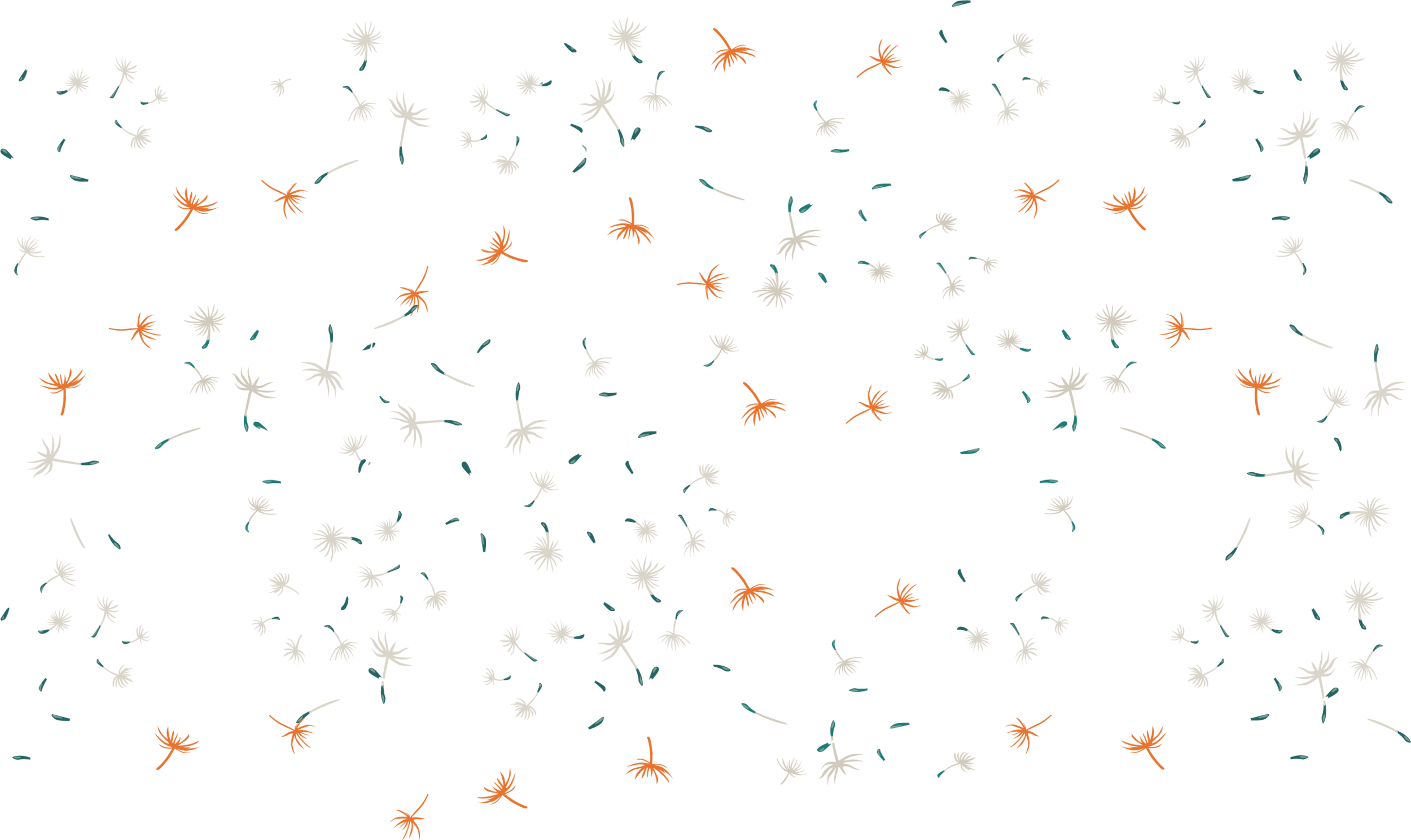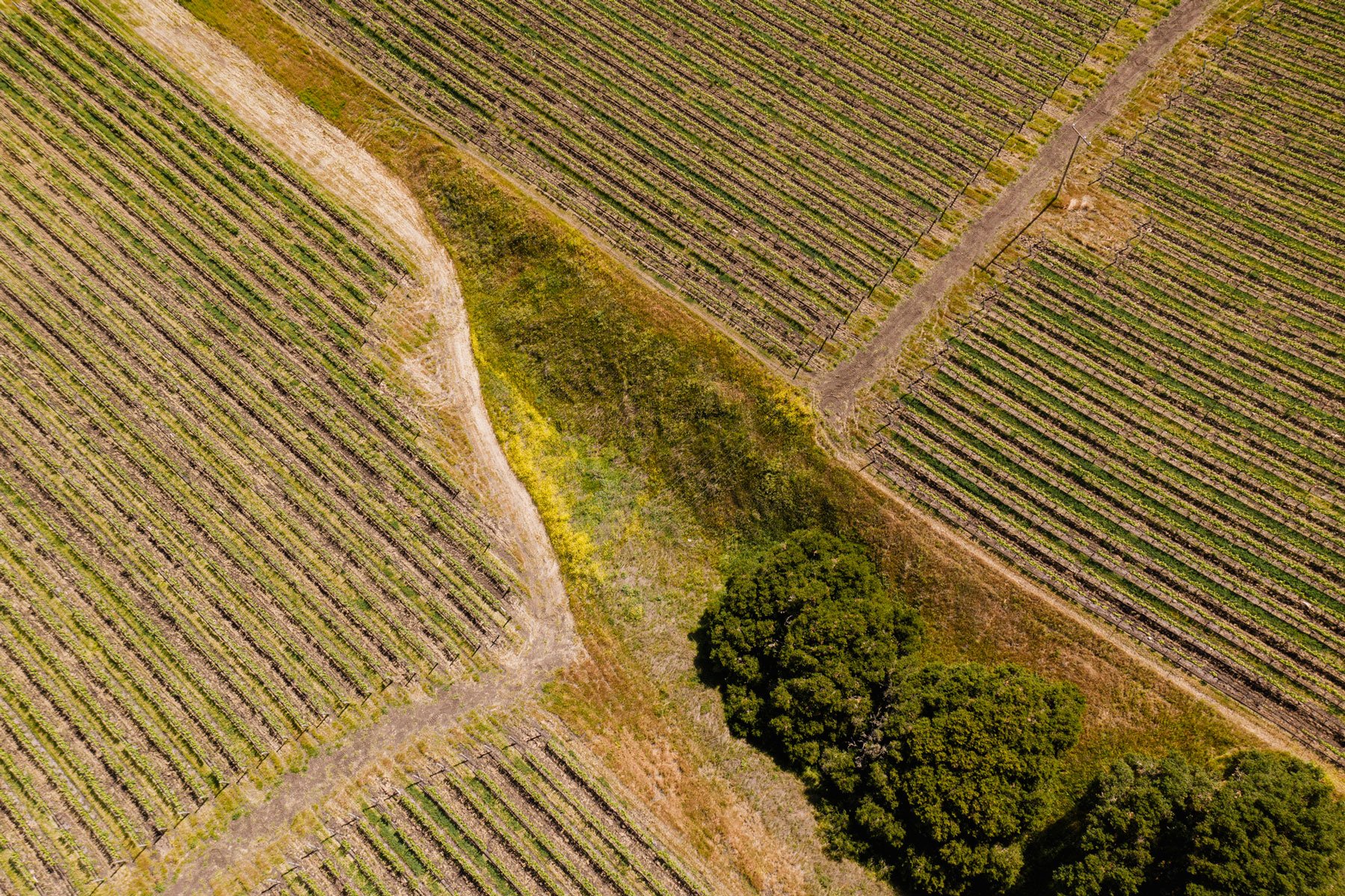Philosophy
All the vineyards that AJ works with are farmed in an environmentally conscious manner.
Historically, the literal action of environmentally conscious farming has involved protecting water purity from erosion or chemical run-off into our waterways; protecting air quality from harmful overspray; preserving local ecosystems of wildlife, native flora, and biodiversity; and the enrichment of soil through regenerative practices as cover crops and carbon capture.
Today, most of the sites AJ works with are farmed organically or adhere to sustainable practices aimed at protecting water purity and encouraging soil and vine health. AJ also believes that the principles of regenerative agriculture—to farm in a way that captures carbon to turn the tide on climate change—should be followed as guiding principles.

Sustainability in Practice at Turning Tide Wines:
We are making wine from vineyards in areas that have ample rainfall or groundwater so as not to pull from precious reserves. This makes us more nimble and resilient with temperature extremes and drought years.
Everything is aimed at protecting water purity by farming without synthetic fertilizers or pesticides that can run off into waterways.
There’s no place even for synthetic fertilizers or pesticides that are potentially harmful to human health, both for farm workers and for human digestion
Our wine is bottled in light-weight recyclable glass, which is lighter to ship and allows more wine to be shipped at once helping save energy, reduce greenhouse emissions, and limit waste. Another bonus is the lighter bottles decrease stress on the back, limiting back injuries and making it easier to carry bottles from the door to your cellar or wine fridge.
The labels we use are created from recycled paper and printed using compostable ink. Bottles with cork closures are not covered by foil, which creates a lot of unnecessary waste.
Exploration of more electronic assets and technology is paramount to us; in the meantime, anything we use that is ‘printed’ must be capable of living a second life in some recycled state.

The notion of ‘sustainability’ with respect to farming all too often takes on many meanings—perhaps to the detriment of understanding the actual ‘sustainable’ efforts at play.
F.A.R.M. Sustainably
1) Farming in an environmentally conscious manner.
2) Active in the pursuit of social justice for all.
3) Responsible management of resources and commitment
to the communities where your business operates.
4) Maintaining a healthy environment for workers.
Sustainable practices in the vineyard eschew the use of chemical herbicides or pesticides because of the harmful effects they have on groundwater, soil health, plant and animal life. AJ works tirelessly to promote and encourage the biodiversity of native plants and beneficial insects in the vineyards and only uses organic material that doesn’t harm humans or the health of the environment of the vineyard.
The Six Pillars of Sustainability
In addition to AJ’s FARM maxims, she identifies six major pillars of sustainability:
Water: Knowing the source and how to protect its purity.
Energy. Keeping it clean and efficient and working to reduce use.
Waste Reduction. Finding ways to re-use or re-incorporate.
Social equality. Committed to the pursuit of social justice for all.
Climate Pro-action. Capturing carbon and working toward carbon negative.
Pesticide & Herbicide Reduction. Mitigating the harmful side effects of a carbon footprint, encouraging native flora/fauna, and focusing on human health by limiting and eliminating the ingestion of pesticide and herbicide residuals.
Environmentally Conscious Packaging
Respectfully cared for at the winery, our wines are then packaged with lightweight recyclable glass bottles for reduced packaging and transportation cost.
Recyclable Glass
Our wines are packaged with light-weight recyclable glass bottles for reduced packaging and transportation cost.
Compostable Labels
The paper for the labels is made from recycled paper, responsibly sourced at a progressive sustainable mill in the US. The label ink is compostable and the label coating is “earthcoating,” not made of any plastic.
Natural Closures
Closures are natural cork closures and recyclable tin capsules. We source all those materials from companies that also practice environmentally conscious manufacturing.
Learn More About Environmentally Conscious Farming
Will France Be the First Glyphosate-Free Wine Region in the World?
French President Emmanuel Macron wants to eliminate the weed killer glyphosate from France within three years, and he is encouraging winemakers, in particular, to take the lead. Speaking at the Paris Agricultural Show Feb. 23, Macron said, "I believe we can create the first wine region in the world without glyphosate."
Today’s Most Innovative Farmers Are Getting Down to Earth
A global study of land and agricultural methods shows dramatic differences in soil quality between farms that employ some simple management tools and those that don’t. “Clever farmers” show how we can make healthier, more productive soil.
Is Gluten The Problem Or Is Glyphosate (Roundup) The problem?
Could exposure to glyphosate, the active ingredient in the weed killer Roundup, cause celiac disease or non-celiac gluten sensitivity? Two scientists argue in a research review that glyphosate could be to blame, but it's not clear they've proven their case.








